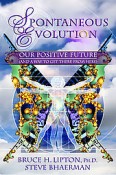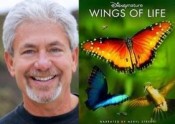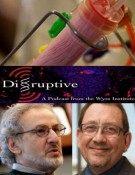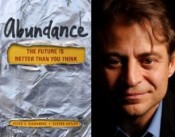DISRUPTIVE: CONFRONTING SEPSIS – Don Ingber and Mike Super
Written on October 14th, 2015Welcome to DISRUPTIVE the podcast from Harvard’s Wyss Institute for Biologically Inspired Engineering.
In this episode of DISRUPTIVE, we will focus on: CONFRONTING SEPSIS.
Sepsis is a bloodstream infection in which the body’s organs become inflamed and susceptible to failure. The leading cause of hospital deaths, sepsis kills at least eight million people worldwide each year. It can be caused by 6 species of fungi and 1400 species of bacteria. Diagnosis takes two to five days, and every hour you wait can increase the risk of death by 5-9%.
“Even with the best current treatments, sepsis patients are dying in intensive care units at least 30% of the time,” says one of today’s guests, Wyss Senior Staff Scientist Mike Super.
A new device developed by a team at Wyss may radically transform the way we treat sepsis. Their blood-cleansing approach can be administered quickly, even without identifying the infectious agent. In animal studies, treatment with this device reduced the number of targeted pathogens and toxins circulating in the bloodstream by more than 99%.
The mission of the Wyss Institute is to: Transform healthcare, industry, and the environment by emulating the way nature builds, with a focus on technology development and its translation into products and therapies that will have an impact on the world in which we live. Their work is disruptive not only in terms of science but also in how they stretch the usual boundaries of academia.
Don Ingber and Mike Super’s Interview transcript
DISRUPTIVE: BIO-INSPIRED ROBOTICS features three separate interviews with (1) RADHIKA NAGPAL, (2) ROBERT WOOD, and (3) CONOR WALSH
Written on October 7th, 2015Welcome to the second episode of my new monthly podcast series produced with Harvard’s Wyss Institute for Biologically Inspired Engineering.
DISRUPTIVE: BIO-INSPIRED ROBOTICS features three separate interviews with (1) RADHIKA NAGPAL, (2) ROBERT WOOD, and (3) CONOR WALSH. From insects in your backyard, to creatures in the sea, to what you see in the mirror, engineers and scientists at Wyss are drawing inspiration to design a whole new class of smart robotic devices
In this one, RADHIKA NAGPAL talks about her work Inspired by social insects and multicellular systems, including the TERMES robots for collective construction of 3D structures, and the KILOBOT thousand-robot swarm. She also speaks candidly about the challenges faced by women in the engineering and computer science fields.
In part two, ROBERT WOOD discusses new manufacturing techniques that are enabling popup and soft robots. His team’s ROBO-BEE is the first insect-sized winged robot to demonstrate controlled flight.
In part three, CONOR WALSH discusses how a wearable robotic exosuit or soft robotic glove could assist people with mobility impairments, as well as how the goal to create real-world applications drives his research approach.
The mission of the Wyss Institute is to: Transform healthcare, industry, and the environment by emulating the way nature builds, with a focus on technology development and its translation into products and therapies that will have an impact on the world in which we live. Their work is disruptive not only in terms of science but also in how they stretch the usual boundaries of academia.
DISRUPTIVE: BIO-INSPIRED ROBOTICS Robert Wood Interview
Free Forum Q&A – PETER DIAMANDIS Chairman, X PRIZE Foundation author, ABUNDANCE: The Future Is Better Than You Think
Written on June 5th, 2015
Originally aired March 2012
Opening day of the 2012 TED conference featured two talks one after the other. The first by Paul Gilding entitled The Earth is Full asked questions like, Have we used up all our resources? Have we filled up all the livable space on Earth? Gilding suggests we have – with the possibility of devastating consequences. In a talk that’s equal parts terrifying and oddly hopeful, he says, “It takes a good crisis to get us going. When we feel fear and we fear loss we are capable of quite extraordinary things.”
That talk was followed by one by this week’s guest, PETER DIAMANDIS, entitled ABUNDANCE IS OUR FUTURE, in which he makes the case for optimism – that we’ll invent, innovate and create ways to solve the challenges that loom over us. “I’m not saying we don’t have our set of problems — climate crisis, species extinction, water and energy shortages – we surely do. But ultimately, we knock them down.”
Since the dawn of humanity, a privileged few have lived in stark contrast to the majority. Conventional wisdom says this gap cannot be closed. But, according to a book by Diamandis and co-author Steven Kotler, it is closing – fast. ABUNDANCE – THE FUTURE IS BETTER THAN YOU THINK documents how progress in artificial intelligence, robotics, infinite computing, ubiquitous broadband networks, digital manufacturing, nanomaterials, synthetic biology, and many other exponentially growing technologies will enable us to make greater gains in the next two decades than we have in the previous two hundred years. They believe we will soon have the ability to meet and exceed the basic needs of every man, woman, and child on the planet.
Q&A: BRUCE LIPTON, Ph.D., and STEVE BHAERMAN (comic), Co Author – SPONTANEOUS EVOLUTION
Written on February 15th, 2015 |
Free Forum Q&A – LOUIE SCHWARTZBERG, filmmaker of WINGS OF LIFE; CHIP TAYLOR, monarchwatch.org
Written on July 16th, 2013 |
Aired: 07/14/13
Our life on earth depends on a most unlikely love affair – one between flowers and the bees, butterflies, birds and bats which enable plants to reproduce. The brilliant colors and exotic perfumes of flowers are designed to lure their pollinators into an intricate dance of seduction, a dance on which more than one third of our food crops depend, a dance without which we could not survive.
If you’re lucky and observant, you’ve witnessed the visits of bees and those marvels of engineering, hummingbirds, to the plants around you. But now, for the first time, you have a chance to watch that magnificent dance of pollinators and plants in the far corners of the globe and in the darkness of night. WINGS OF LIFE, the latest documentary from remarkable cinematographer and director, LOUIE SCHWARTZBERG, is now available on DVD. More than beautiful – which it is – the film carries an important message about the threats to pollinators and in turn, the threat to life itself.
I’ll be joined by LOUIS and CHIP TAYLOR a Monarch butterfly expert.



